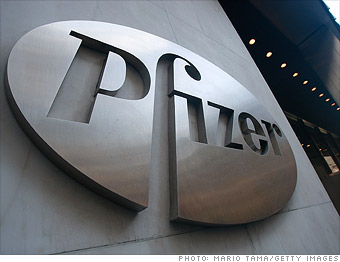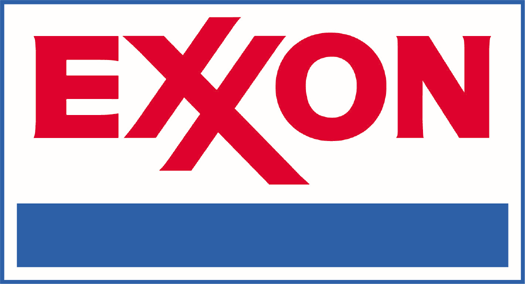In recent light of events involving the M23 in the Democratic Republic of Congo, let's take a deeper look at the effect of the 4 traps described by Paul Collier in the
Bottom Billion.
The Conflict Trap:
Among the slew of nicknames that the DRC has, "conflict" ought to be one of them. Collier defines the two greatest risk factors for those that fall under this trap are low income and low growth. With a stagnant and slowly declining growth rate of approximately 6% and nearly 70% of the population in poverty, the DRC has had a civil war under Kabila. Yet, the root cause of the conflict in the DRC goes back to the
Berlin Conference of 1884. Unaware, the European nations largely combined some Rwandan speaking population along Northern Kivu and Southern Kivu with Congolese populations. For example, the Banyarwanda (aka "those who come from Rwanda"), populate much of North and South Kivu. While, they live in the DRC, they speak the language of Rwandans, and thus with the lack of even good governance, the area is constantly mired in conflict. Language can play the important role in unifying a country and tearing it apart.
At the same time, this internal conflict fuels the conflict coming from the outside. The M23 rebel group provides ample evidence of this. Because of the internal divisions spawned by the linguistic and ethnic differences, allows the M23 rebel group to even set up
de facto administration within the DRC and to overtake Goma and Sake.
But let's take a closer look at the role of having Rwanda as a neighbor...
The Landlocked with Bad Neighbors Trap:
While Collier defines this particular trap with the characteristics of being fully surrounded by other countries, the DRC partially falls under this trap. The DRC, although it appears to be at the heart of Africa, actually has approximately 40 km coastline. For example, it has access to trade, to export one of its main natural resources, its
mining industry. However, just because it's not landlocked, doesn't mean it avoided the bad neighbors.
History shows that not even 20 years ago, because of the DRC's greedy neighbors, Uganda and Rwanda, the country struggled in a great civil war. And most recently, the M23 rebel group infiltrated the DRC, capturing Goma and Sake, reviving the bad blood among the Ugandans, Rwandans, and Congolese. After all, the M23 is largely found to be heavily
supported by the Rwandans and possibly Ugandans.
Yet, why the Congo is deeply affected by its neighbors relates back to not only the aforementioned language issue, but it's a case of bad governance makes the situation worse. As Collier states, " a good government can most surely make a difference in a landlocked resource-scarce country, even with bad neighbors" (63).
Bringing us to...
The Bad Governance Trap:
The DRC hovers the boundary of falling under this trap. It hovers because it hovers the boundary of being a failed state and not being a failed state. A failed state, is based on the parameters of bad governance and bad policies, according to Collier. So, remember
Moise Tshombe or Mobutu? People
who antagonized ethnic groups by supporting regional strong men who plunder resources. These figures created the DRC's past as a failed state. In this sense, the DRC is a paradox. While the current president,
Kabila has implemented
budgeting programming, it lacks in its ability to stop figures like
Bosco Ntaganda (aka the general of the Congolese army).
Further evidence of bad governance points to the humanitarian crisis that remains uncontrollable by the government. With nearly, 1.8 million women raped, at a rate of approximately 1 rape per minute. Rapes committed primarily by unpaid government soldiers. The inability to stop the humanitarian crisis, leaves the population largely behind, especially since this then affects education. Although Collier mentions that a precondition for a turnaround necessitates a large enough population so that the educated population reaches critical mass. However, in the case of the Congo, if such a large portion of the population is oppressed, education becomes second to survival, and thus, the bad governance trap remains.
The Hall of Fame - DRC's leaders over the years
 |
| Kasavubu |
 |
| Mobutu |
 |
| Laurent Kabila |
 |
| Joseph Kabila |
The Natural Resources Trap:
The DRC unfortunately also has a case of the Dutch Disease. Although it is blessed with precious resources such as cobalt, copper, diamonds, gold, zinc, etc, it has known exploitation and corruption as a result of these resources. In fact,
The Heart of Darkness delineates the Dutch Disease and its effects on the DRC. The DRC's particular case of Dutch Disease comes with two implications. The first is the
humanitarian crisis that it has spurred. In terms of the value of human life in the DRC, it is worth very little. The armies and proxy militias of nearly 6 different countries as well as those of the Congolese government and rebel groups have taken no shame in plundering and looting the natural resources of the DRC.
The second implication is that of Collier's: using natural resources to fuel conflict, especially since the DRC is democratic while it is also very ethnically diverse. In fact, the mining industry of the DRC is evidence of corruption and exploitation. For example, many "makeshift" mining ores are built to exploit these resources, and many during the wars affecting North and South Kivu, creating the profit to buy more arms for the militias. This in effect prohibits further growth, as the country is put under the conflict trap as well.
 About a week ago, American drug giant Pfizer (proud bringer of Lipitor) paid the US government more than $55 million in fines for the actions of one of its companies, Wyeth, which overstated the benefits of its drug protonix, despite warnings from the FDA.
About a week ago, American drug giant Pfizer (proud bringer of Lipitor) paid the US government more than $55 million in fines for the actions of one of its companies, Wyeth, which overstated the benefits of its drug protonix, despite warnings from the FDA.
















